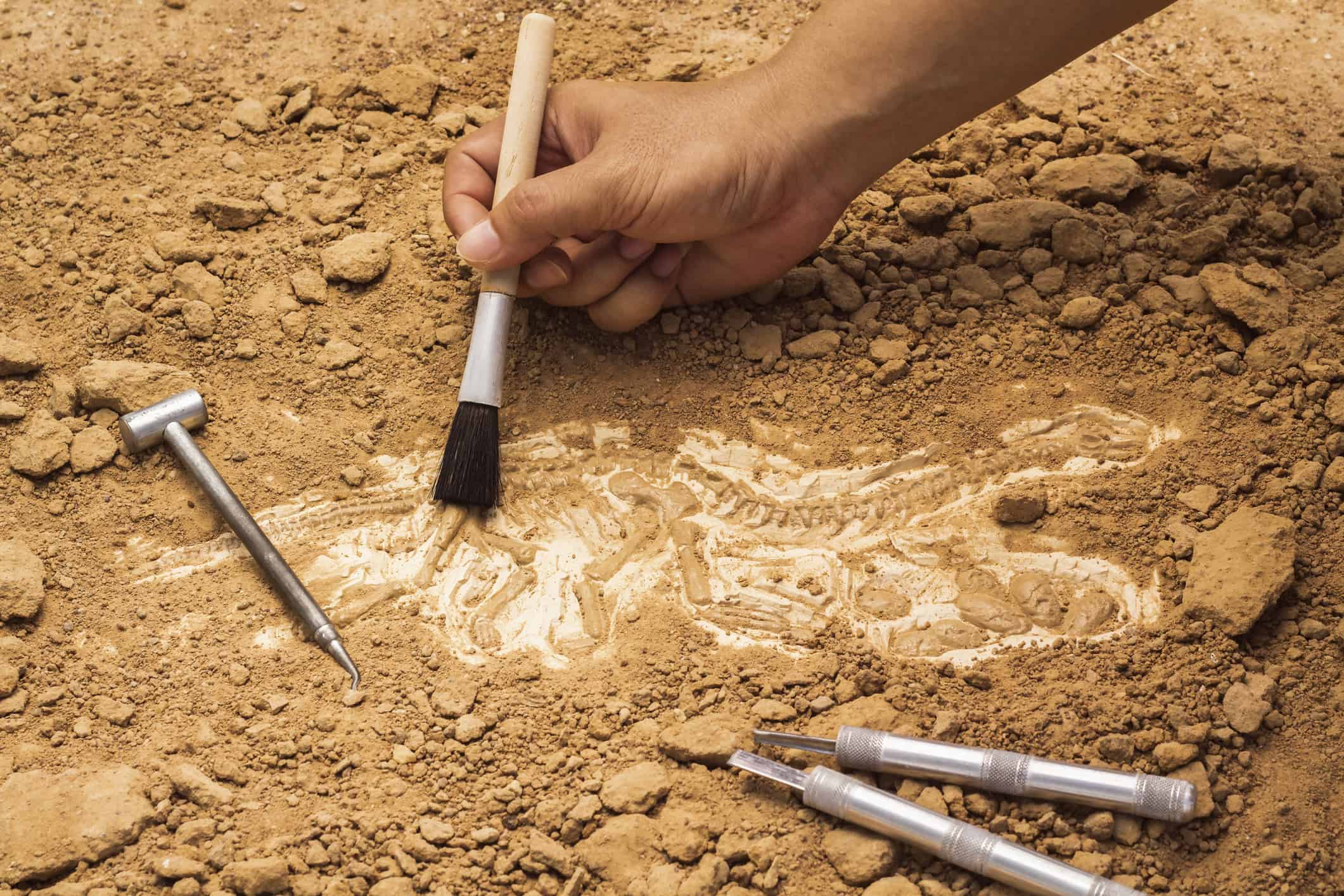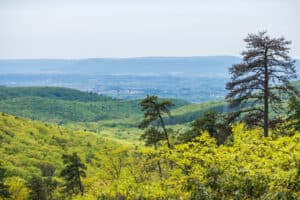You can find fossils almost anywhere on Earth. However, some places are easier than others. Places with dried lava flows, deep water, and moving sand dunes make it difficult to reach the layers of sediment where fossils can be found. The best places to find fossils without having to dig many feet through dirt and rock will be places where the wind and water have eroded the terrain surrounding the fossils. If you have recently discovered fossil hunting, or live in Florida and want to add something truly impressive to your home collection, we recommend fossil hunting in Florida!
Places like ancient riverbeds, current riverbanks, oceans, and cliffsides are all fantastic places to find fossilized creatures. All this makes Florida a fantastic place to search for fossils. So, where are the best places for fossil hunting in Florida?
Fossil Hunting Rules to Follow
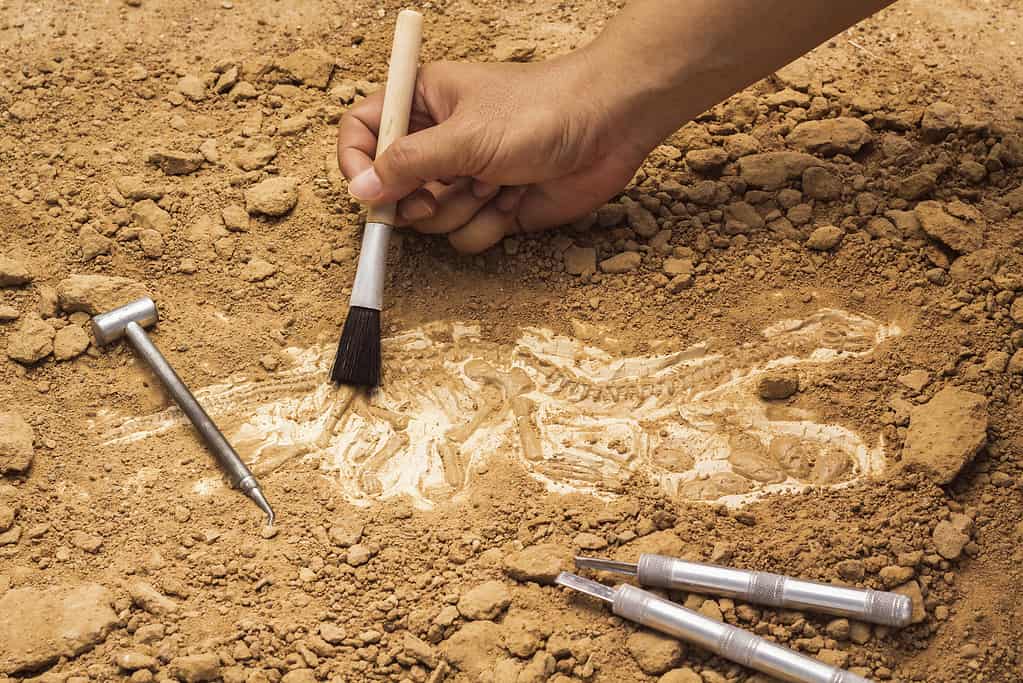
You probably won’t find full skeletons like this, but they are out there! Be careful when digging and looking for fossils.
©LuFeeTheBear/iStock via Getty Images
When hunting for fossils, whether in Florida or anywhere in the world, there are a few things you should keep in mind. This information will not only help you be successful in your hunt but also stay safe while doing so.
Do your research
First, do your research about where you live or the area you plan on hunting in. There are better places to look for fossils than others. Get in touch with local geologists or archaeologists. They will be able to point you to areas where you will be more likely to find fossils. Seek to understand the geology of where you are looking. There will be different types of fossils based on what layer of earth you are looking in and what that layer is composed of. If the land you are looking through is a pre-historic lakebed, you will be more likely to find small sea creatures and mollusks. On a beach, you will probably find more shark teeth. If you don’t know what you’re looking for, then you won’t be able to recognize what you’ve found if you do find anything.
Don’t get discouraged!
Secondly, fossil hunting involves a fair amount of luck. Some people get lucky their first time, but most do not. Plan on taking a few trips to a location before you find anything. The more often you go to one location, the better you will get at recognizing the signs of fossils and the best places to look. Don’t get discouraged if you don’t find anything your first, second, or third time hunting.
Know the area, and do not trespass
Third, when hunting, make sure to stay on public land or land that you have permission to visit. Do not trespass. If you do find something on land while trespassing, not only will you be charged for the crime of trespassing, but you will have to surrender whatever you’ve found. Be prudent and get permission first. Follow all safety advisories and take proper precautions when hiking and exploring off of trails and roads.
This is particularly true when hunting in or near water. Fossils pushed downstream by rivers will accumulate in places where the currents deposit them like riverbanks and shoals in the middle of the river. The currents will be particularly strong here and can carry away a careless hunter. Make sure you understand the risks and dangers of the area you are hunting. This includes water, wildlife, potential rockslides and avalanches, and more. Always tell others where you plan on hunting that day.
Bring proper equipment
Fourth, bring the right equipment for your hunt. You are unlikely to find fossils sitting on the top of the ground staring you in the face. You will need shovels, buckets, gloves, tarps, and other appropriate equipment. This is, of course, besides all the other gear for hiking, climbing, or camping you will need. If you are hunting in or near water, bring water gear and supplies to treat hypothermia.
Best Locations for Fossil Hunting in Florida
We found the places where most people have reported success in finding fossils their first time hunting. Professionals and amateurs alike recommend these places for newcomers. So where should you go for fossil hunting in Florida?
The Peace River
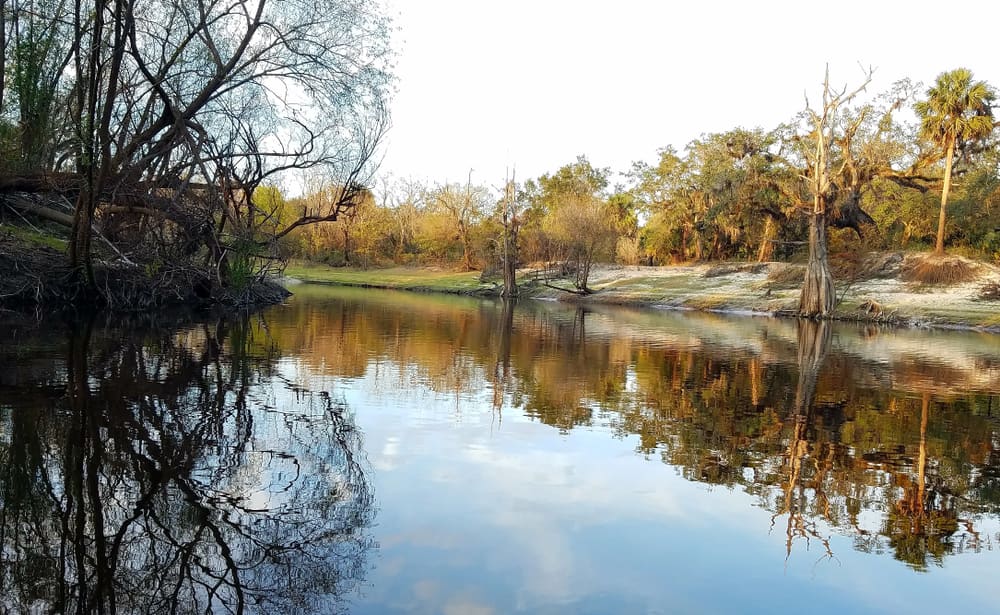
Peace River, Florida. This river erodes through the layers of phosphate rock that contain many fossils.
©Marc Pletcher/Shutterstock.com
The Peace River flows through a layer of sediment about 5 to 15 million years old composed of phosphate rock. Phosphate rock is made from organic material that has decomposed and solidified into stone. Because it is a layer made of organic remains, this layer of earth is full of fossils from that era. Phosphate rock is easily eroded away by water, like the Peace River. The fossils found in more solid stones are then washed downstream and deposited at river bends or piles of rocks in the middle of the river.
The Peace River is a fantastic place to find invertebrate fossils like snails, sand dollars, and shells. Other fossils can include mammoths, saber tooth tigers, and other large mammals. When hunting in the Peace River, you’ll want to ask the locals about where the best spots in the river are to hunt. Rivers evolve over time, and places that might have been great hunting spots in the past might have moved, or better spots might have been discovered.
Jacksonville Beach
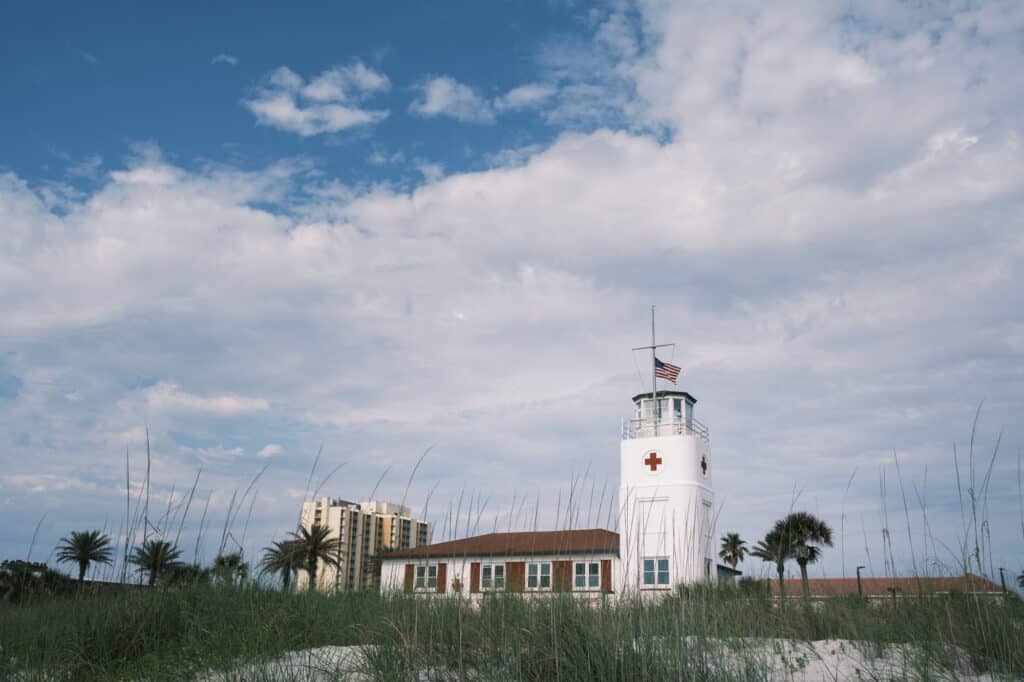
Jacksonville beach is a very popular location to find shark teeth.
©Marcelo Murillo/Shutterstock.com
Florida is famous for the abundance of shark and megalodon teeth found on its beaches. On Jacksonville Beach, people have found fossilized seahorses, giant ground sloths, and more! The best time to hunt for fossils is right after a storm. You are more likely to find tiger shark teeth. And while these might not always be fossils, they are still a fun find! Make sure you look closely while hunting, however, shark teeth can be very small and will often go unnoticed.
If you want to have greater success while hunting at Jacksonville Beach, bring your scuba gear or at least some snorkeling equipment. Not all the best fossils will make their way onto the beach. Many will remain visible yet under the water further out in the ocean. You will be able to find larger and rarer specimens this way and find those that other hunters couldn’t reach.
Fort Drum Crystal Mine
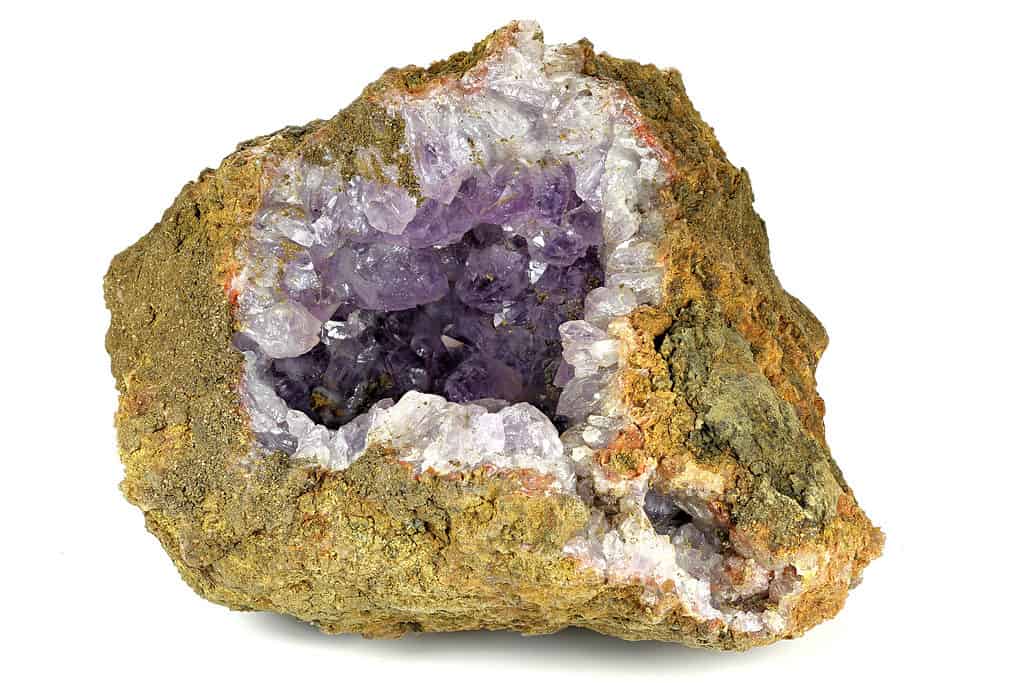
An amethyst geode. You can find gems along with fossils at mines like Fort Drum.
©Bjoern Wylezich/Shutterstock.com
While most popular for crystal collectors, Fort Drum Crystal Mine is also a great place to find small fossils. Crystals form in places where water and minerals can accumulate undisturbed for millions of years. These places are also fantastic areas where bones, shells, and other organic materials can turn into fossils.
At Fort Drum Crystal Mine, you pay a flat fee for a bucket and can collect as many crystals, rocks, gems, and fossils as you can find. Depending on how long you spend in the mine, and how closely you hunt, you can come away with a pretty impressive collection of invertebrate and vertebrate fossils!
Venice Beach
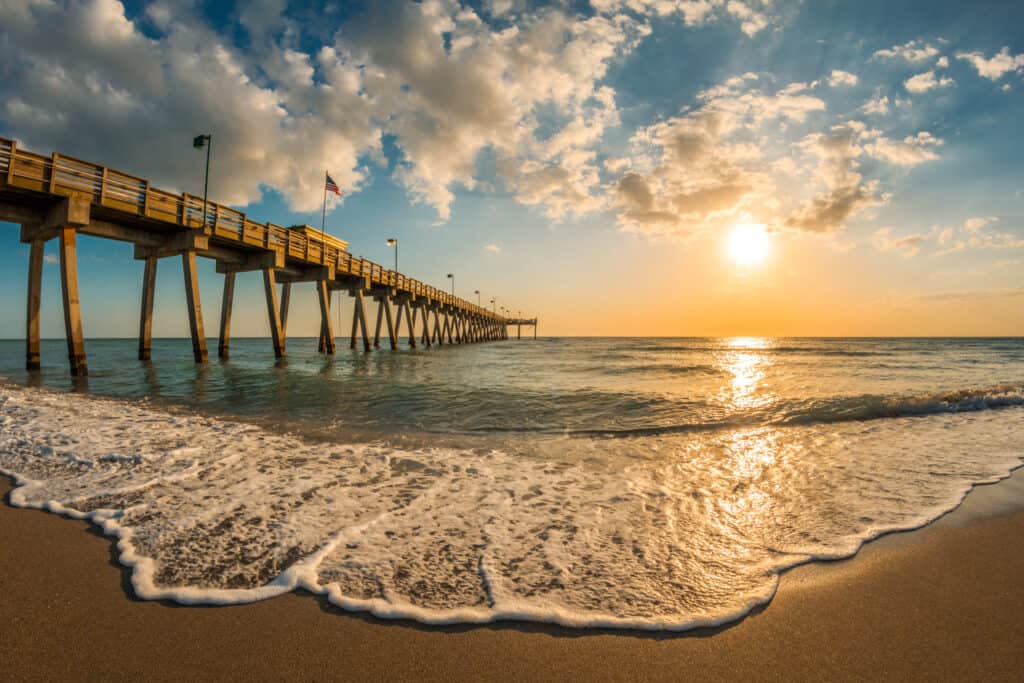
Venice beach sits along the Gulf of Mexico. These warm waters conceal many varieties of fossils under the waves.
©Jim Schwabel/Shutterstock.com
Venice Beach has earned the nickname of the “shark tooth capital of the world”. That’s quite the recommendation for would-be fossil hunters! Venice Beach is easy to get to and stretches for miles. This whole region of Florida used to be covered by ocean, so there are many fossils still hidden in the water and under the sand. Head here after a storm to increase the likelihood of finding something.
Mines and Quarries
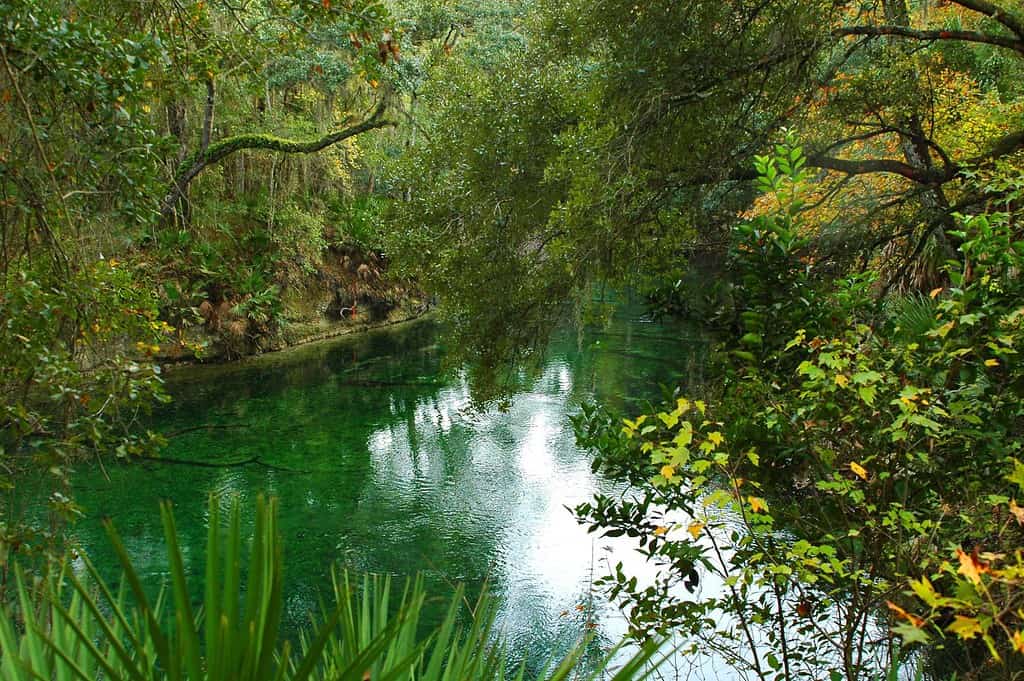
The rivers that flow through Florida will often carry fossils with them, especially if they flow near mines or quarries. Inquire with the local experts to find the best spots.
©Caleb Foster/Shutterstock.com
Because mines and quarries dig deep into the limestone and phosphate layers of Florida, they are fantastic places to find and dig for fossils. A number of mines and quarries have been turned into tourist attractions that let you dig for your own fossils. A quick online search will help you find the ones closest to you and what kinds of fossils or gems are commonly found there. Do not go exploring any mine you find on your own. If it is an active mine, you will be charged with trespassing. If it is an abandoned mine, it will be an extremely dangerous place. Abandoned mines conceal hidden dangers like shafts, animals, loose rocks, gas pockets, treacherous water, and more!
Professional Fossil Hunting Tours
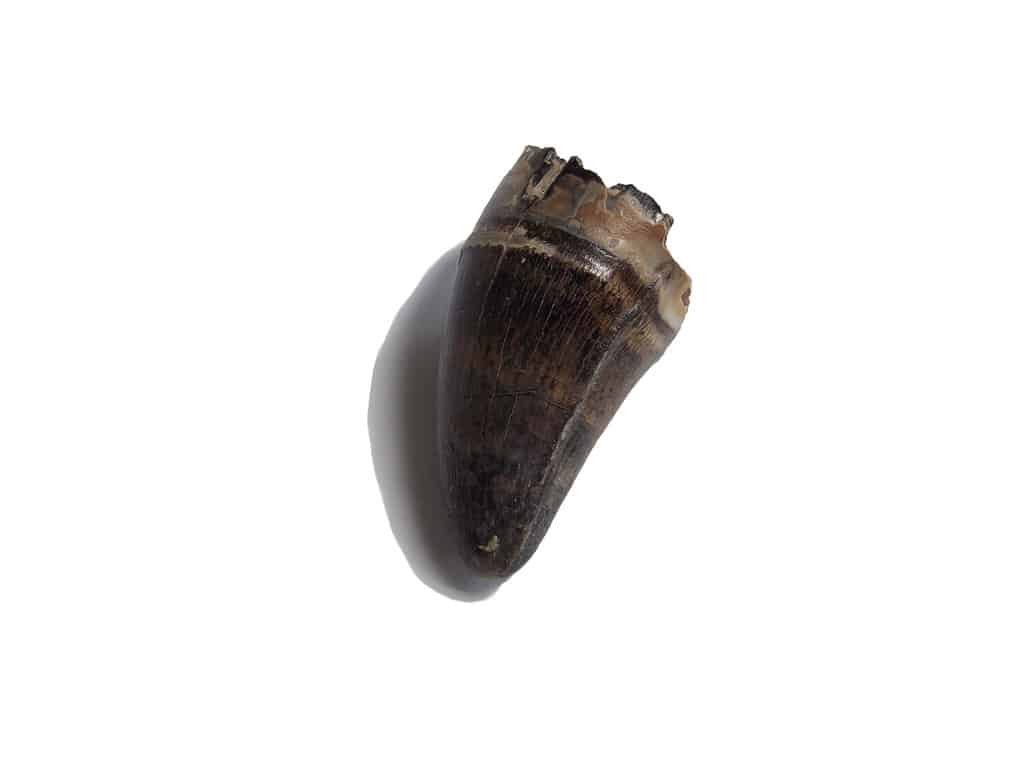
A fossilized
alligator
tooth. These are common and often easy to find in Florida if you know what to look for!
©SEAN D THOMAS/Shutterstock.com
Florida is a popular place for fossil hunters. Naturally, local businesses have hopped on the fossil train and now offer guided fossil hunting tours! There are a number of well-known fossil-hunting companies that offer different experiences, services, items for sale, and more. If you are just beginning your fossil-hunting adventure, there is no better way to learn the ins and outs of fossil hunting than to join an expert for your first time!
These companies usually take you on a tour of the rivers, beaches, or other fossil-rich areas. They will teach you what to look for, the geology of the region, and help you find your first fossils!
No matter where you choose to go hunting, or what you find, you will always leave a fossil hunt with good memories. If you do find something, you will know that you have the only one like it! Fossils are just as unique as the animals that died to make them possible. Cherish your fossil treasures just as much as you do the experience of finding them!
Thank you for reading! Have some feedback for us? Contact the AZ Animals editorial team.

